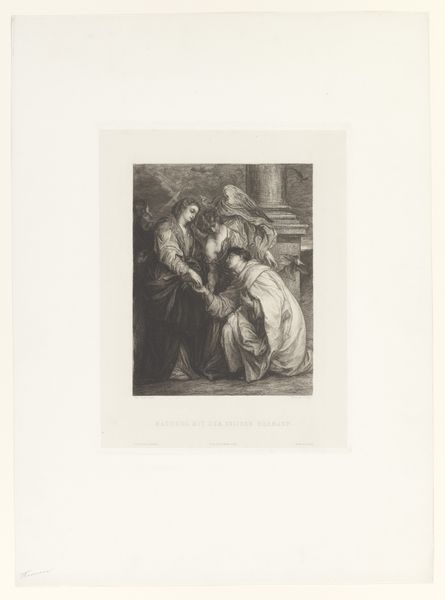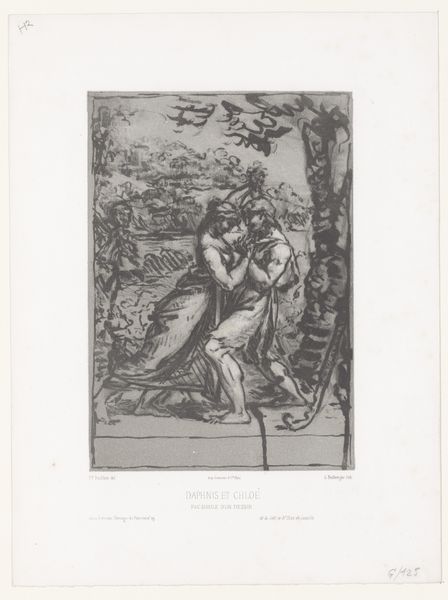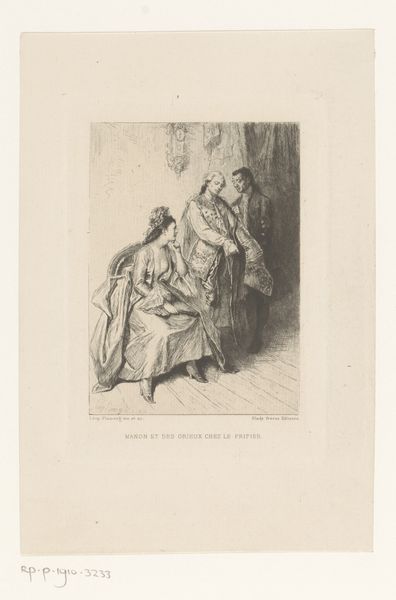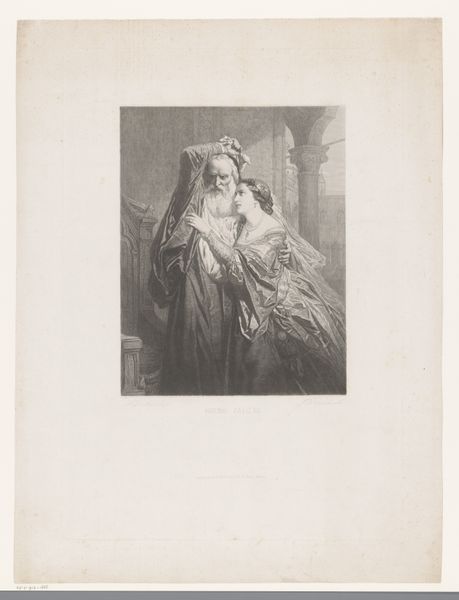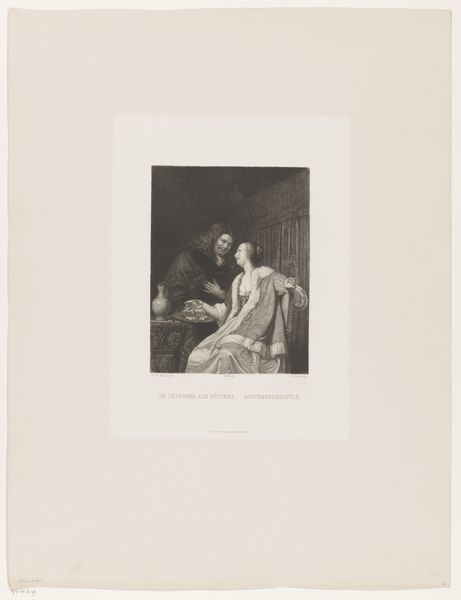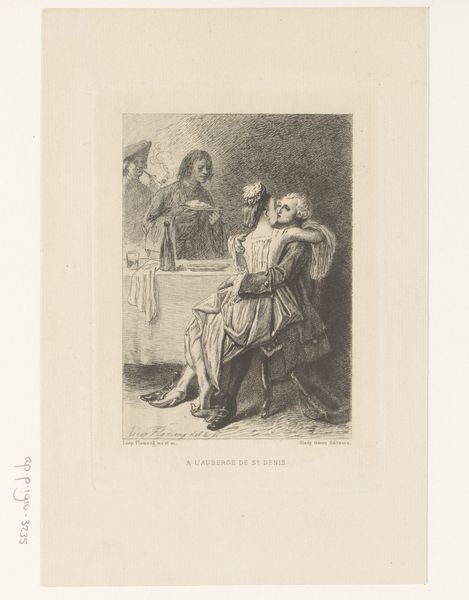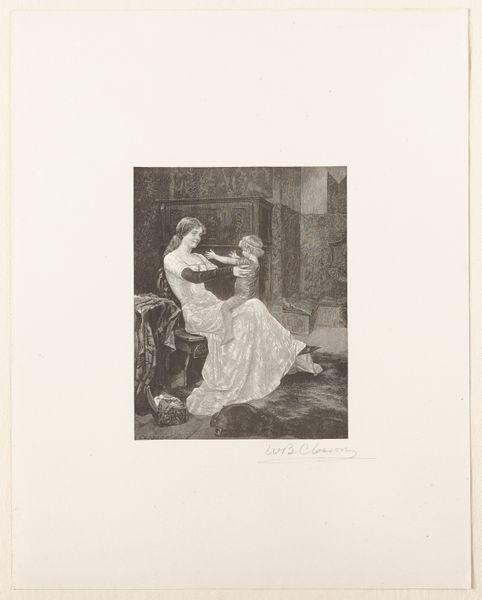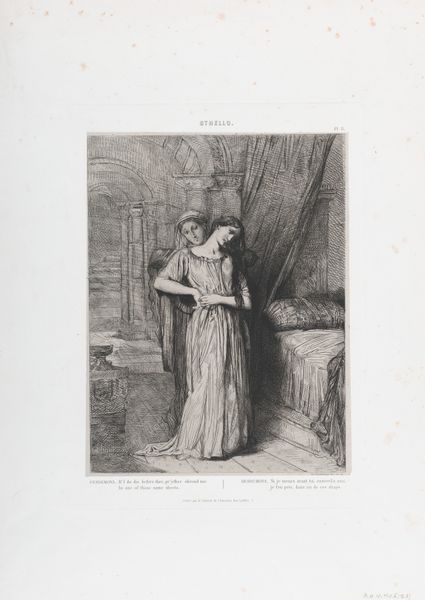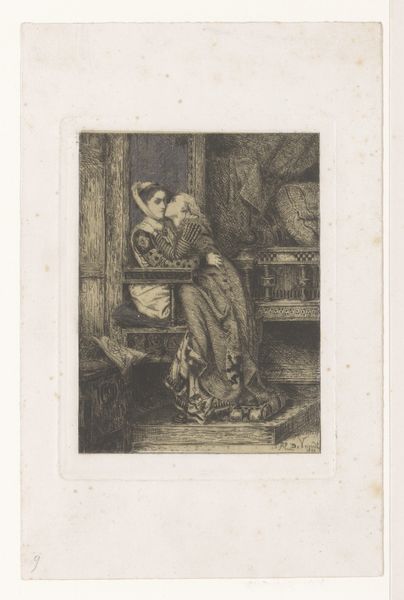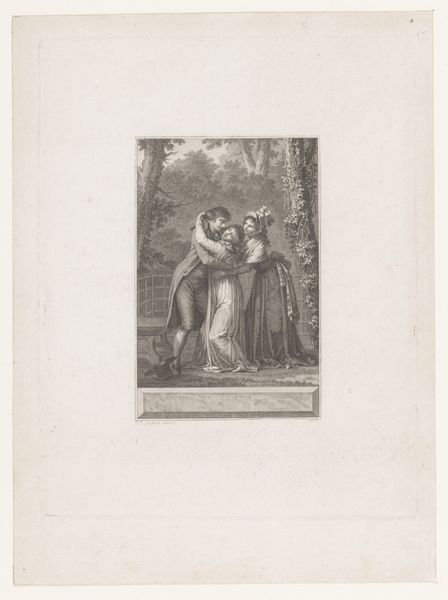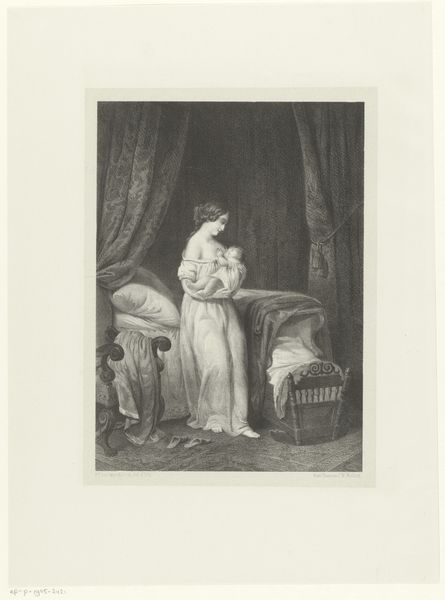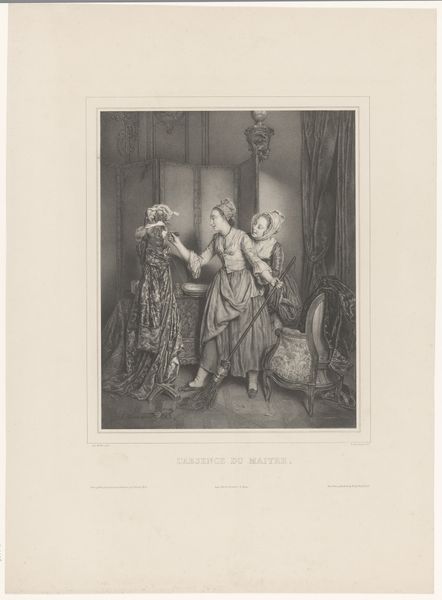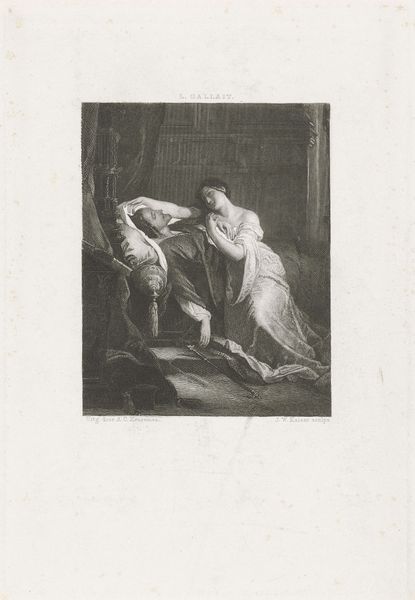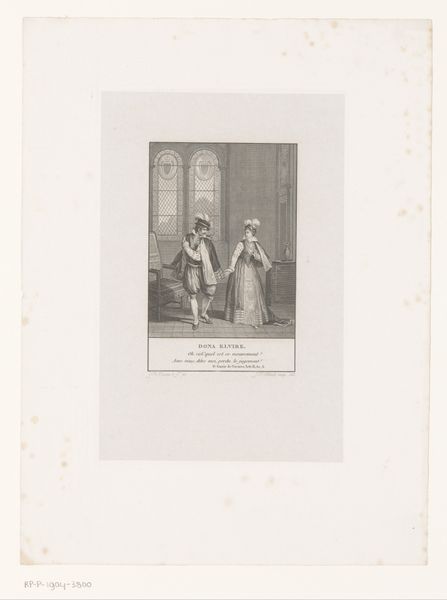
print, engraving
#
portrait
#
narrative-art
# print
#
genre-painting
#
engraving
#
realism
Dimensions: height 326 mm, width 223 mm
Copyright: Rijks Museum: Open Domain
This print, by an artist named Warnots, shows a woman and child. Its title, "Or et Misère," translates to "Gold and Misery." It was made using a method called chromolithography. This was an innovative technique in the 19th century. It allowed for multiple colors to be printed, creating images that could mimic paintings. This particular print uses the process to striking effect. The contrast between the woman's worn clothes and the gilded door behind her emphasizes the divide between rich and poor. The printmaking process itself has social implications. Chromolithography made art more accessible to a wider audience. The level of detail that could be achieved made prints more desirable and valuable. Ultimately, understanding the materials and techniques used to create this artwork gives us a richer understanding of its meaning. It prompts us to consider the social and economic context in which it was made, and the role of art in reflecting and shaping society.
Comments
No comments
Be the first to comment and join the conversation on the ultimate creative platform.
